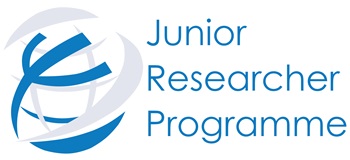The JRP approach to safety, integrity and transparency in research
As the JRP has continuously improved standards for scientific work across many disciplines in psychology, we have also redoubled our efforts to ensure that any work supported through the programme expresses a clear commitment to ethical guidelines even while carried out through a variety of institutions, countries and languages. While we are neither a university nor a programme with a fixed location, we still approach ethics as the first and most important element of each project. During jSchool training, there are several explicit discussions surrounding ethics where the below elements are presented. For each of these, it is made abundantly clear that, even with ambiguity and variance between many locations/institutions on how to approach ethics for international projects, we demand transparency and clear records on how ethical approval was obtained for each study and testing location. Beginning in 2013, we have decided to make those steps public as a means to reference and better understand our approach and ultimately our research. This section is thus a description of how we advise our groups to gain ethical approval but we underline that such endorsement does not come from the JRP itself.
1. Research Supervisor Institution
Before being offered a position to lead one of the six JRP research groups each year, prospective Supervisors are required to guarantee that they have access to a standing ethics committee in their institution. As part of this process, Supervisors must also ensure that they have guidance on how to remain ethical if/when testing in a location beyond the scope of their own institution.
2. Junior Researcher Institution
For our researchers still studying or otherwise engaged in universities who wish to claim affiliation with an institution, we require that they notify their respective faculties/departments of the work as soon as the jSchool is complete and the Supervisor has received ethical approval. As each university varies in terms of student project ethical guidelines, we do not have a standing approach to the next steps but explicitly request all participants ensure they have received written approval of this project from an authorised source locally or their own full ethical review, if required. We then advise our groups to have these documents translated into the appropriate languages for immediate production if requested.
3. Testing Location
Many of our projects move on to test in non-university environments, such as schools, community centres and other established organisations. Much like with universities, not all institutions have the same (or even standing) guidelines on how permission is granted to test among their membership. For this reason, we advise our groups to contact the organisation as soon as they are certain of their data collection plans to get details on how permission to collect data should be gained. Sometimes this is as simple as a short email where others require higher authorities (e.g. education ministries, local councils) to provide authorisation.
4. Affiliation
The above steps must be followed before the JRP will assign affiliation for any team member to project outputs. This is done to protect universities and institutions of our members to ensure they are not linked to work without their direct knowledge. This may not always equate to ethical review in each location, but at least an acknowledgement from an authorised source from a recognised institution which may be listed as a participant in the project must confirm awareness without reservation about the research. All outputs from the work should then be reported back to both the affiliated institutions and, as established in other commitment documents, to the JRP.
In some circumstances where team members are unable to list an affiliation (e.g. recent graduation, not possible receive affiliation in current institution, etc; NOTE: not in the case of ethical approval being denied), we offer JRP as an official option. The same protocols must be followed for this as all other affiliation requested described above, though we explicitly note that in these instances, JRP may not be the sole affiliation for any individual or group collecting data, nor does this affiliation represent ethical approval.
Last updated: 17th April 2016
